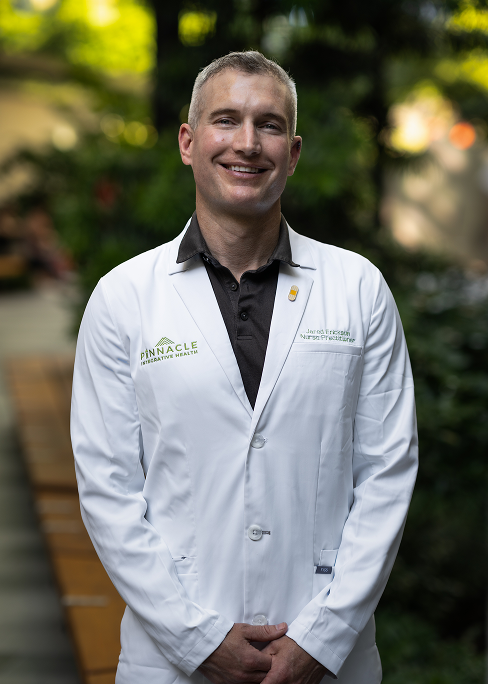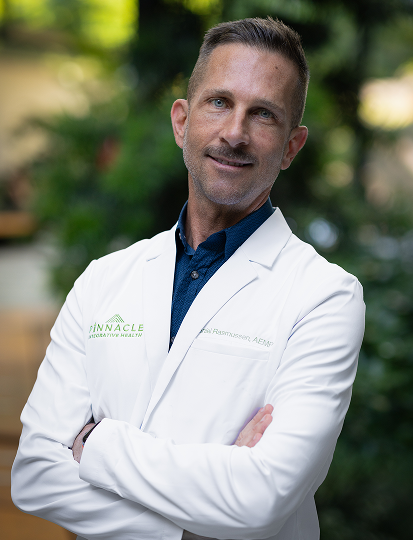Why Waiting for Symptoms Might Be the Most Dangerous Health Mistake You Make

Most people believe they are in good health as long as they do not feel sick. No pain means no problem, right? But the truth is, some of the most dangerous health conditions develop quietly, without any clear warning signs. They build silently and slowly over decades, and by the time symptoms finally appear, significant damage may have already occurred.
This mindset, waiting for symptoms before taking action, is one of the most harmful beliefs many of us have been taught. It is costing people their energy, their quality of life, and in some cases, even their lives.
Why the System Waits Until It’s Too Late
I have spent more than 15 years helping high performers challenge what they think they know about aging and health. One of the hardest truths to face is this: our current healthcare system isn’t designed to keep you well. It’s designed to respond once something has gone wrong.
Here’s how that shows up in real life:
- You don’t get your arteries checked until after you’ve had chest pain.
- You don’t get brain scans until memory problems show up.
- You don’t get inflammation or oxidative stress labs until you’ve already been diagnosed.
This system isn’t failing because it lacks tools. It’s failing because it waits.
Why? Because the system is reactive, and unfortunately, treating disease after it shows up is exponentially more profitable than preventing it in the first place.
Why Waiting for Symptoms Is So Risky
Let’s talk about how this plays out in the body. Conditions like heart disease, vascular dementia, and metabolic dysfunction don’t start with obvious warning signs. They often begin quietly, sometimes decades before diagnosis.
The early signs are usually brushed off or misread. People feel:
- Tired more often, even after sleep
- Gradual decline of sleep quality
- Slower to recover from stress or workouts
- Foggy or forgetful
- More anxious, irritable, or wired
- Less sharp mentally or emotionally
Most people chalk this up to aging. But these are not just signs of getting older, they can be the body’s way of saying something deeper is going on.
In many cases, these are early messages from your cardiovascular system. And ignoring them, or just accepting them as normal, puts your future at risk.
The Tests That Catch Problems Before They Happen
This is where a different kind of approach makes all the difference, one that focuses on staying ahead of health issues instead of waiting for them to show up. Rather than reacting to symptoms, we look at what’s happening beneath the surface before anything breaks.
One of the key tools in this kind of care is an advanced heart scan that goes far beyond routine checkups. It’s specifically designed to detect the earliest signs of arterial aging, especially soft plaque that may not cause any symptoms but can suddenly rupture, leading to a heart attack or stroke. It’s the kind of test that helps reveal hidden risks years before traditional methods would ever catch them.
That’s not the only layer worth paying attention to. Something that no cardiologist will order is deeper lab testing, which can reveal critical information that standard checkups often overlook.
These tests examine:
- Oxidized LDL, a more dangerous form of cholesterol that can quietly increase cardiovascular risk
- Inflammatory markers that may signal silent damage happening inside the body
- Hormone balance, which plays a key role in energy, mood, and recovery
- Blood sugar regulation, which directly affects both heart and brain health
These aren’t part of the typical yearly physical, but they should be. They offer the chance to catch the disease earlier and make a more informed cardiovascular disease diagnosis and upstream interventions before any obvious symptoms show up. Test, don’t guess!
Combined with simple, strategic changes, like adjusting nutrition, adding key supplements, or exploring therapies such as cellular regeneration therapy, it becomes possible to slow, stop, or even reverse early signs of heart disease and risk for stroke.
What You Can Do Right Now
If you are reading this and wondering where to begin, do not wait. It is not necessary to have symptoms in order to take your health seriously. And you do not need anyone’s permission to start asking better questions about what is really happening in your body.
Here’s what you can do right now:
- Try the free vascular age quiz; it only takes a few minutes and could reveal important signs that a routine checkup might have overlooked.
- Write down the early signs your body is giving you. Are you tired often? Is your recovery slow? Don’t ignore them.
- Ask your doctor about tests that go beyond surface-level numbers. If they can’t help, find someone who will. Hint: Echelon gives you access to this testing!
- If you’re curious about tests for heart health, ask about inflammation, CIMT plaque scans, and oxidative stress, not just cholesterol. Cholesterol is slight of hand trick to distract you from the true root cause… inflammation!
- If you’ve heard about cellular regeneration therapy and wonder if it’s right for you, we’ll cover it in future blog articles. But know this: it’s not about reversing time. It’s about helping your body function the way it was meant to.
Final Thoughts
Your health is not just something that happens to you. It is something you either build, year by year, or quietly neglect over time. Waiting for symptoms before taking action is not a form of caution; it is a risk that does not need to be taken. You deserve more than being told, “you are fine,” when deep down, you know something feels off. And you do not need a diagnosis to start paying attention to the messages your body is sending. Take the step now, not after it becomes too late.
FAQs
1. How is cardiovascular disease diagnosed before symptoms appear?
Through advanced imaging like the Heart Threat Scan, blood tests that check for oxidized LDL and inflammation, and careful tracking of early metabolic changes. These are not part of a standard cardiovascular disease diagnosis, but they can show problems long before they become dangerous.
2. Are there any early warning signs of heart disease that most people ignore?
Yes. Fatigue, brain fog, poor sleep, anxiety, and slow recovery can all be signs that your cardiovascular system is under stress. These are often dismissed as aging but may point to deeper issues.
3. What’s the first step if I want to take control of my heart health today?
Start by getting the right information. Take the free vascular age quiz, then look into deeper tests for heart health like inflammation markers, oxidative stress, and early imaging. These can help guide the next best step.




